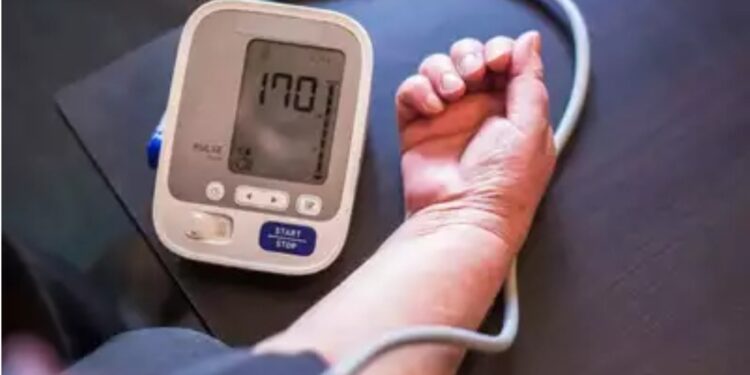Hypertension is a major cause of premature death worldwide, including in Nigeria. Unfortunately, not many people know they have the condition because they are not diagnosed and remain untreated.
People with high blood pressure may not feel symptoms and the only way to know is to get their blood pressure checked.
Below are the 10 things to know about hypertension:
1. Hypertension also known as high blood pressure is when the pressure in your blood vessels is too high -140/90 mmHg or higher. Blood pressure numbers of less than 120/80 mm Hg are considered within the normal range.
2. Studies say about 40 per cent of Nigeria’s population live with hypertension. Over 80 million Nigerians are living with hypertension in the country. The prevalence is higher in the urban areas.
3. The things that can increase the risk of having high blood pressure are old age (age over 65 years), a family history of hypertension, and being overweight or obese (If your Body Mass Index is 25.0 to <30, it falls within the overweight range. If your BMI is 30.0 or higher, it falls within the obesity range), not being physically active, high salt diet, drinking too much alcohol, tobacco, and diet high in saturated fat and trans fats.
4. Poverty, anxiety, preeclampsia, and eclampsia also fuel hypertension.
5. People with very high blood pressure (usually 180/120 or higher) can experience symptoms like severe headaches, chest pain, dizziness, difficulty breathing, nausea, vomiting, blurred vision or other vision changes, anxiety, confusion, buzzing in the ears, nosebleeds, and abnormal heart rhythm. If you are experiencing any of these symptoms, seek care immediately.
6. The only way to detect hypertension is to have a health professional measure blood pressure. Having blood pressure measured is quick and painless. You can also measure your blood pressure using automated devices, but an evaluation by a health professional is important for the assessment of risk and associated conditions.
7. Hypertension can cause other health challenges like heart, brain, and kidney diseases, and is one of the top causes of death and diseases throughout the world. It can be easily detected by measuring blood pressure, at home or in a health centre, and can often be treated effectively with low-cost medications.
8. If you have heart disease or stroke, diabetes (high blood sugar), chronic kidney disease, or high risk for cardiovascular disease, your blood pressure goal is less than 130/80.
9. To prevent and lower high blood pressure, eat more vegetables and fruits, sit less, be more physically active (Walk, run, swim, dance, lift weights), and get involved in at least 150 minutes per week of moderate-intensity aerobic activity or 75 minutes per week of vigorous aerobic activity, lose weight if you’re overweight or obese, take medicines as prescribed by your health care professional, and keep appointments with your health care professional.
10. You can reduce the risks of hypertension by reducing and managing stress, regularly checking blood pressure, treating high blood pressure, and managing other medical conditions.





